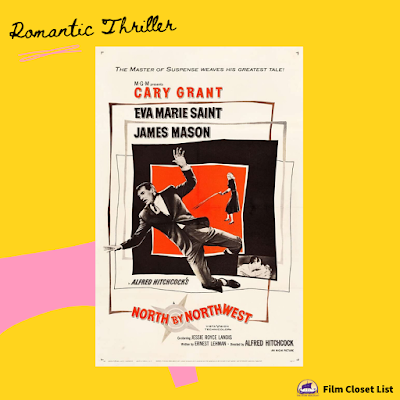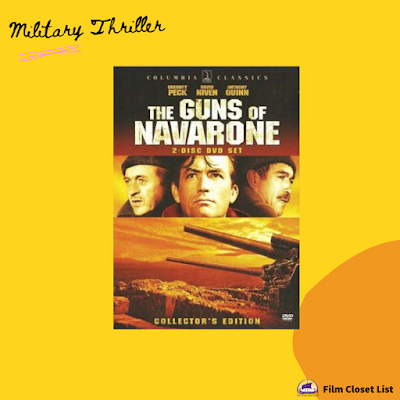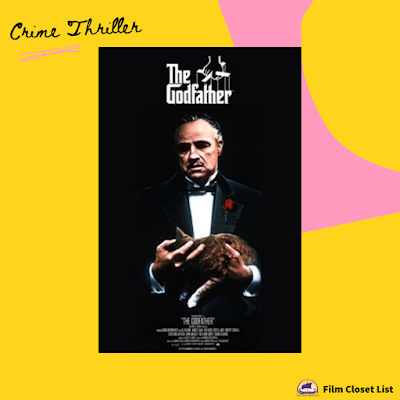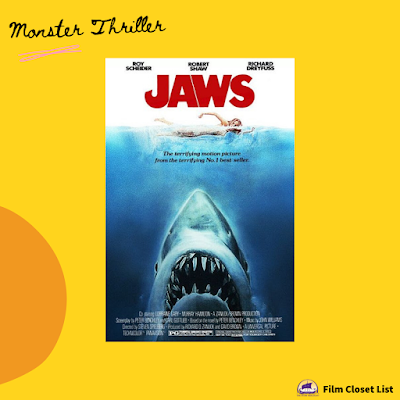Kenneth Atchity's Blog, page 80
May 4, 2020
Dealing with your Type-C Creative Mind
For all storytellers—novelists, screenwriters, journalists, nonfiction writers, and children’s book writers.
Sometimes the struggle to publish can drain even the strongest creative dynamo. Here's how to recharge your creativity, to keep your career going...and going...and going...
Learn More about One-on-ONe coaching to help understand a Type-C personality and equip you with practical tools to make yourself more productive and less frustrated with storytelling.

Sometimes the struggle to publish can drain even the strongest creative dynamo. Here's how to recharge your creativity, to keep your career going...and going...and going...
Learn More about One-on-ONe coaching to help understand a Type-C personality and equip you with practical tools to make yourself more productive and less frustrated with storytelling.

Published on May 04, 2020 00:00
April 30, 2020
Story Merchant's Flim Closet
Published on April 30, 2020 10:36
April 28, 2020
BASIC TRAINING FOR TRANSITION with Kenneth Atchity
If transition from the service to civilian life is a challenge for you, mark your calendar for April 30, 4 pm E.T.
Supported by The Purple Heart Foundation. The focus of this #FREE workshop will be your questions issues and questions.

The transition from military service to civilian life isn’t always easy. For many vets the problems feel insurmountable. This virtual Q&A session with story editor and career-change coach Dr. Ken Atchity (YalePHD) will revamp personal mythologies. Many vets come home trapped in dysfunctional stories they tell themselves. Dr. Atchity will suggest strategies & tactics to aid transition into taking charge of your own story—and making it happen.
Register for this event here and join us on April 30—or help us connect to people that need it.

Supported by The Purple Heart Foundation. The focus of this #FREE workshop will be your questions issues and questions.

The transition from military service to civilian life isn’t always easy. For many vets the problems feel insurmountable. This virtual Q&A session with story editor and career-change coach Dr. Ken Atchity (YalePHD) will revamp personal mythologies. Many vets come home trapped in dysfunctional stories they tell themselves. Dr. Atchity will suggest strategies & tactics to aid transition into taking charge of your own story—and making it happen.
Register for this event here and join us on April 30—or help us connect to people that need it.

Published on April 28, 2020 12:19
April 27, 2020
Getting Your Stories Straight Series by Ken Atchity
Welcome to "Getting Your Story Straight" series on InstagramTV @storymerchant Getting Your Stories Straight Series by Ken Atchity. Professional coaching tips to help you figure out point of view, structure, and master all the elements of story.


Published on April 27, 2020 12:59
April 25, 2020
Discover the first Teaser of the new Steve Alten's web-series MEG ISLAND & Sea Monster Cove!
➤Imagine a new form of web entertainment – an interactive experience where members can observe the most terrifying sea creatures that ever lived, each housed in the most advanced aquariums ever conceived, and the animals and people react and respond to your presence.
➤Add to that several adventure series set against the same backdrop, independent yet interwoven, written by best-selling authors. Welcome to MEG ISLAND ➤Support us on: https://igg.me/at/megisland/x/23379186#/ Written by Steve Alten and Maxime Ginolin Special effects by Steve Clarke and Paul Knott Soundtrack by Maxime Michel

Published on April 25, 2020 00:00
April 23, 2020
Story Merchant Master Coaching 101
Quarantine Edition


For all storytellers—novelists, screenwriters, journalists, nonfiction writers, and children’s book writers.
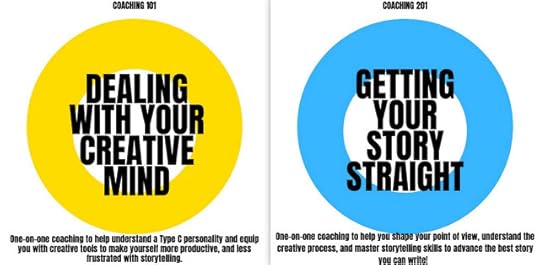
For a limited time, Ken’s new Story Merchant Master Coaching is $1,497 for six months. This rate offered only until May 1, 2020.Learn More

Published on April 23, 2020 11:54
April 22, 2020
San Francisco Review of Books: 'Your VIP Biography: How to Write Your Autobiography to Land a Hollywood Deal' by Alinka Rutkowska and Kenneth Atchity

Available on Amazon
‘You oughta be in pictures!’ – and making it happen
Co-authors Alinka Rutkowska and Kenneth Atchity are both significant personas and writers in their own right, and their joining forces has resulted in publishing that special book every writer wants to find – how to write important character biographies, including (inhale, breathe) our own autobiography! Alinka is not only a best selling author but also a coach to many writers, ably sharing her experience and skills with writers around the world, as well as being CEO of Leaders Press. Kenneth is a producer and author, a “story merchant,” editor, speaker, career coach, columnist and professor of comparative literature. Strong combo, very strong results.
In the flavorful Foreword, Kenneth states, “A life is a story when it has a compelling beginning, a conclusive and satisfying ending, and a middle filled with unexpected twists and turns, highs and lows, happy breaks and dismal setbacks. If you’ve led a life like that, if you’ve taken an extraordinary path we would like all to know about, then this book is for you.’ A fine invitation and what follows in this book is a key to the door of opportunity.
Alinka and Kenneth share examples of successful memoirs that have become both best sellers and successful movies, and in outlining the aspects of these winners, they instruct us how to get there, from basic information about what constitutes a ‘memoir’ – the definition (and meaning) of Character, Conflict, Structure, Theme, Secondary story elements, and all aspects of the ingredients necessary in creating a memoir. Once defined, and supplemented with outstanding examples of successful memoirs we all know (Angela’s Ashes, The Wolf of Wall Street, The Glass Castle, The Pursuit of Happyness), they then guide us as to how to make it all happen in book form – and getting that book form cinematically friendly.
This is not only a fun read, a journey of its own to read, including the impressive and substantial ‘Entertainment Business and Story Market Glossary of Term,’ but it also is a very practical course in writing by two highly respected authors. Highly Recommended.
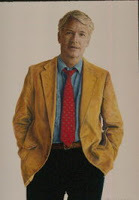 Editor's note: This review has been published with the permission of Grady Harp. Like what you read? Subscribe to the SFRB's free daily email notice so you can be up-to-date on our latest articles.
Editor's note: This review has been published with the permission of Grady Harp. Like what you read? Subscribe to the SFRB's free daily email notice so you can be up-to-date on our latest articles. Read more

Published on April 22, 2020 10:17
April 18, 2020
Why Moviegoing May Have Changed For Good — IndieWire’s Movie Podcast
Box office expert Tom Brueggemann makes a special appearance to discuss how the last few weeks have changed the exhibition landscape.
IndieWire’s Tom Brueggemann makes a special appearance on Screen Talk to speak with Eric Kohn about the biggest questions facing theater owners. The conversation ranges from the major chains to the arthouses, as well as the issues facing film festivals and indie distribution. Brueggemann and Kohn also share some of the older films they’ve been watching on streaming platforms.


IndieWire’s Tom Brueggemann makes a special appearance on Screen Talk to speak with Eric Kohn about the biggest questions facing theater owners. The conversation ranges from the major chains to the arthouses, as well as the issues facing film festivals and indie distribution. Brueggemann and Kohn also share some of the older films they’ve been watching on streaming platforms.


Published on April 18, 2020 00:00
April 15, 2020
Listen to Keeping Your Spirits up During COVID-19 Webinar with Kenneth Atchity and Alinka Rutkowska
Hollywood Producer Kenneth Atchity and USA Today best-selling author Alinka Rutkowska show you how to make the most of the lockdown.
As many of us move into month two of lockdown with no set "re-opening" date on the horizon, it's only natural that we feel overwhelmed.
After all, this is a big change from what we're used to and probably the biggest such change in our lifetime that we have little control over.
But there's something we can control...
...and that's our mood...
...and our response to what's going on.
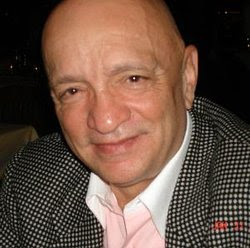

Ken taught at UCLA and the NYC Yale Club classes such as as:
• Keeping Your Spirits Up;
• Dealing with Rejection;
• How to Deal with the Waiting;
These classes have never been more timely, which is why we're bringing you the best of the three above to our online masterclass.
LISTEN HEREHere's what they shared:
• How to deal with anxiety and use it get your creative juices flowing; • How to deal with procrastination and rejection; • The secret to happiness as a writer when nothing is certain; • Identifying the C-Type personality; • Calculating the odds of success in turbulent times; • Managing your attention span; • And much more!

As many of us move into month two of lockdown with no set "re-opening" date on the horizon, it's only natural that we feel overwhelmed.
After all, this is a big change from what we're used to and probably the biggest such change in our lifetime that we have little control over.
But there's something we can control...
...and that's our mood...
...and our response to what's going on.


Ken taught at UCLA and the NYC Yale Club classes such as as:
• Keeping Your Spirits Up;
• Dealing with Rejection;
• How to Deal with the Waiting;
These classes have never been more timely, which is why we're bringing you the best of the three above to our online masterclass.
LISTEN HEREHere's what they shared:
• How to deal with anxiety and use it get your creative juices flowing; • How to deal with procrastination and rejection; • The secret to happiness as a writer when nothing is certain; • Identifying the C-Type personality; • Calculating the odds of success in turbulent times; • Managing your attention span; • And much more!

Published on April 15, 2020 13:26
First Story Merchant Cocktail/Coffee Klatch
 Top to Bottom - Left to RightLisa Cerasoli, Sam Skelton, Neha DuttaDan Moskowitz, Douglas Fetterly, Donald Bull Linda Malcor, Chi-Li Wong, Gary Wenkle Smith
Top to Bottom - Left to RightLisa Cerasoli, Sam Skelton, Neha DuttaDan Moskowitz, Douglas Fetterly, Donald Bull Linda Malcor, Chi-Li Wong, Gary Wenkle Smith
Published on April 15, 2020 00:00


